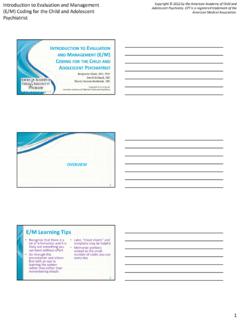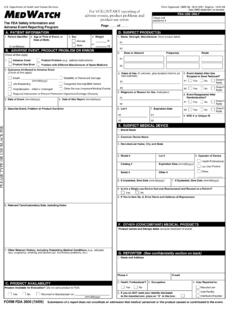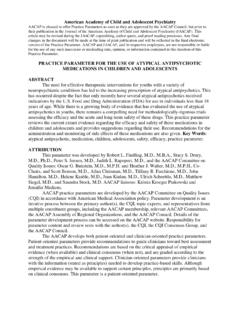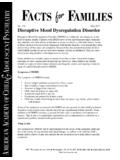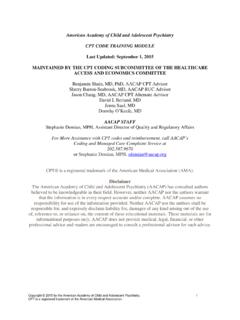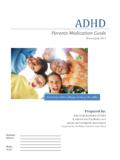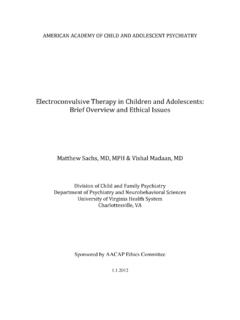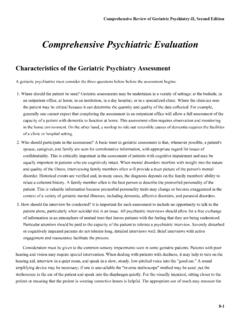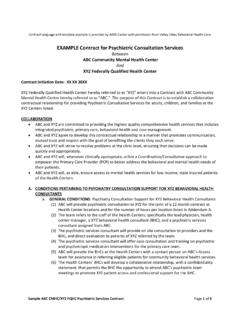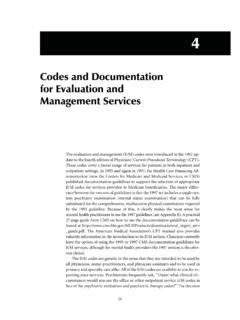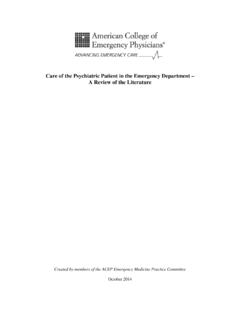Transcription of Evaluation and Management (E/M) Patient Examples Office ...
1 Evaluation and Management (E/M) Patient Examples Office , Established Patient CPT five-digit codes, descriptions, and other data only are copyright 2012 by the American Medical Association (AMA). All Rights Reserved. No fee schedules, basic units, relative values or related listings are included in CPT . CPT is a registered trademark of the American Medical Association (AMA). IMPORTANT. The sample progress notes below meet criteria for the specified E/M code, but do not necessarily meet criteria for the multiple other purposes ( , clinical, legal). of documentation. For illustration, the documentation meets requirements specified by the codes for the exact levels of each of the 3 key components.
2 In practice, criteria for these codes may be met by documenting only 2 of 3 of the key components at or above the level required by the code. SERVICES SHOULD ALWAYS BE MEDICALLY NECESSARY. Office visit for a 9-year-old male, established Patient , with ADHD. Mild Office visit for a 27-year-old female, established Patient , with stable 99213 symptoms and minimal medication side effects. depression and anxiety. Intermittent moderate stress. CC 9-year-old male seen for follow up visit for ADHD. Visit attended by Patient and 27-year-old female seen for follow up visit for depression and anxiety.
3 Visit mother; history obtained from both. attended by Patient . Expanded Problem HISTORY: HPI Grades are good (associated signs and symptoms) but Patient appears distracted Difficulty at work but coping has been good. Minimal (severity) situational sadness HISTORY. Focused (quality) in class (context). Lunch appetite poor but eating well at other meals. (quality) and anxiety when stressed (context). HPI scoring: 3 elements = Brief HPI scoring: 3 elements = Brief PFSH N/A N/A. ROS Psychiatric: denies depression, anxiety, sleep problems Psychiatric: no sadness, anxiety, irritability ROS scoring: 1 system = Problem-pertinent ROS scoring: 1 system = Problem-pertinent Const Appearance: appropriate dress, comes to Office easily Appearance: appropriate dress, appears stated age Exp.
4 Problem MS N/A N/A. Focused EXAM: EXAM. Psych Speech: normal rate and tone; Thought content: no SI/HI or psychotic symptoms; Speech: normal rate and tone; Thought content: no SI/HI or psychotic symptoms;. Associations: intact; Orientation: x 3; Mood and affect: euthymic and full and Associations: intact; Orientation: x 3; Mood and affect: euthymic and full and appropriate appropriate; Judgment and insight: good Examination scoring: 6 elements = Expanded problem-focused Examination scoring: 7 elements = Expanded problem-focused Problem 1: ADHD Problem 1: Depression Comment: Relatively stable; mild symptoms Comment: Stable MEDICAL DECISION.
5 MEDICAL DECISION. Plan: Renew stimulant script and increase dose; Plan: Renew SSRI script at the same dose;. Return visit in 2 months Return visit in 3 months Low Complexity MAKING: MAKING. Problem 2: Anxiety Comment: Stable Plan: Same dose of SSRI. Prob Problem scoring: 1 established problem, stable (1); total of 1 = Minimal Problem scoring: 2 established problems, stable (1 for each = 2); total of 2 = Limited Data Data scoring: Obtain history from someone other than Patient (2); total of 2 = Limited Data scoring: None = Minimal Risk Risk scoring: Chronic illness with mild exacerbation, progression, or side effects; and Risk scoring: Two stable chronic illnesses.
6 And Prescription drug Management = Moderate Prescription drug Management = Moderate Evaluation and Management (E/M) Patient Examples Office visit for a 13-year-old male, established Patient , with depression, Office visit for a 70-year-old male, established Patient , with stable depression 99214 anxiety, and anger outbursts. and recent mild forgetfulness. CC 13-year-old male seen for follow up visit for mood and behavior problems. Visit 70-year-old male seen for follow up visit for depression. Visit attended by Patient and attended by Patient and father; history obtained from both.
7 Daughter; history obtained from both. HPI Patient and father report increasing (timing), moderate (severity) sadness (quality) Patient and daughter report increasing distress related to finding that he has repeatedly that seems to be present only at home (context) and tends to be associated with lost small objects ( , keys, bills, items of clothing) over the past 2-3 months (duration). yelling and punching the walls (associated signs and symptoms) at greater frequency, Patient notices intermittent (timing), mild (severity) forgetfulness (quality) of people's HISTORY: HISTORY. at least once per week when Patient frustrated.
8 Anxiety has been improving and names and what he is about to say in a conversation. There are no particular stressors Detailed intermittent, with no evident trigger (modifying factors). (modifying factors) and little sadness (associated signs and symptoms). HPI scoring: 6 elements = Extended HPI scoring: 6 elements = Extended PFSH Attending 8th grade without problem; fair grades Less attention to hobbies PFSH scoring: 1 element: social = Pertinent PFSH scoring: 1 element: social = Pertinent ROS Psychiatric: no problems with sleep or attention; Psychiatric: no problems with sleep or anger.
9 Neurological: no headaches Neurological: no headaches, dizziness, or weakness ROS scoring: 2 systems = Extended ROS scoring: 2 systems = Extended Const Appearance: appropriate dress, appears stated age Appearance: appropriate dress, appears stated age MS N/A Muscle strength and tone: normal Detailed EXAM: Psych Speech: normal rate and tone; Thought process: logical; Associations: intact; Speech: normal rate and tone; Thought process: logical; Associations: intact; Thought EXAM. Thought content: no SI/HI or psychotic symptoms; Orientation: x 3; Attention content: no SI/HI or psychotic symptoms; Orientation: x 3; Attention and concentration: and concentration: good; Mood and affect: euthymic and full and appropriate ; unable to focus on serial 7s; Mood and affect: euthymic and full and appropriate.
10 Judgment and insight: good Recent and remote memory: mild struggle with telling history and remembered 1/3. objects Examination scoring: 9 elements = Detailed Examination scoring: 10 elements = Detailed Problem 1: Depression Problem 1: Depression Comment: Worsening; appears associated with lack of structure Comment: Stable; few symptoms Plan: Increase dose of SSRI; write script; CBT therapist; Plan: Continue same dose of SSRI; write script MEDICAL DECISION MAKING: MEDICAL DECISION MAKING. Return visit in 2 weeks Return visit in 1 month Problem 2: Anxiety Problem 2: Forgetfulness Comment: Improving Comment: New; mildly impaired attention and memory Moderate Complexity Plan: Patient to work with therapist on identifying context Plan: Brain MRI; consider referral to a neurologist if persists Problem 3: Anger outbursts Comment: Worsening; related to depression but may represent mood dysregulation Plan: Call therapist to obtain additional history.
